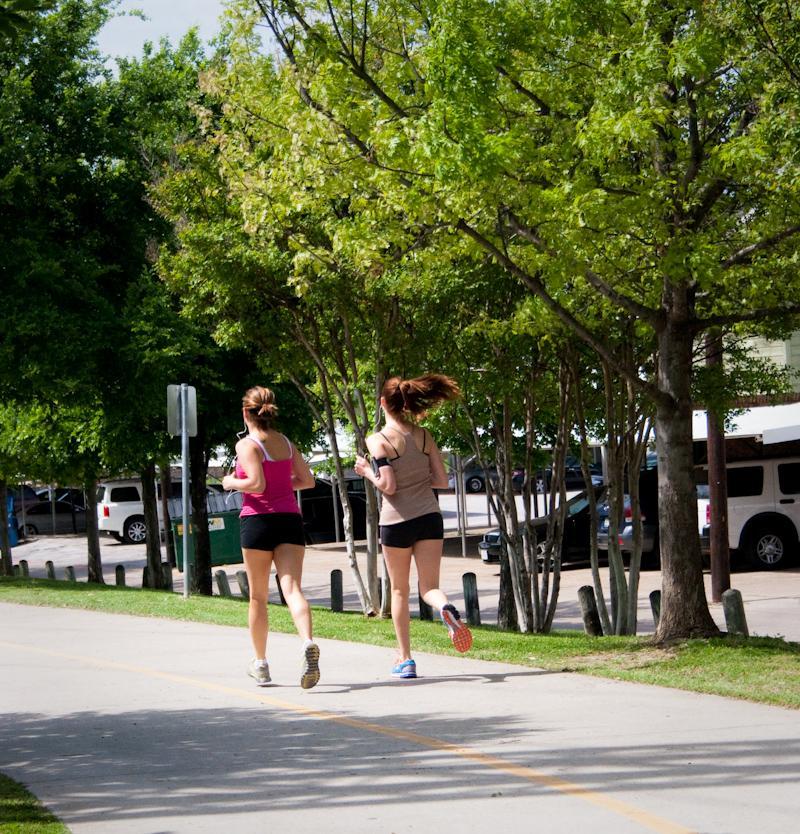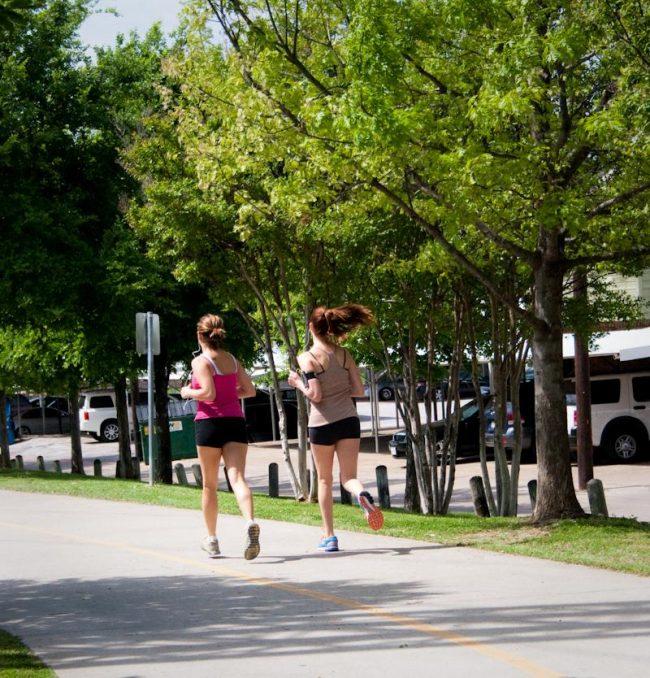
Runners on Dallas’ Katy Trail were at the mercy of extremely high pollen levels this weekend. (Taylor Martin/The Daily Campus)
For those of you with seasonal pollen allergies, nothing is more miserable than doing your workout outdoors this time of year.
Dr. Steven Cole of Park Lane Allergy and Asthma Center said, “I always tell people to make sure they are limiting their activities outdoors if they do suffer from allergies especially on days with high pollen counts or days that are dry and windy.”
He says that the best time to exercise outdoors is when the air is a bit heavier because pollen does not fly as fast on days after it rains or days that are more humid.
For many, the time of day will make a difference in how you feel.
“People will often find that early morning or late night the air is heavier,” Cole said.
Taking an antihistamine a couple of hours before you go outdoors can help alleviate some of your systems.
According to Cole, Zyrtec, Claritin and Allegra are the three best options and they will not leave you feeling fatigued.
“Pollen will stick to you,” he said. So, after you come inside change your clothes and, “make sure to rinse or to shower.”
Try taking these preventative measures and if you are still not feeling well, it may be best to do your workout indoors for the time being.










